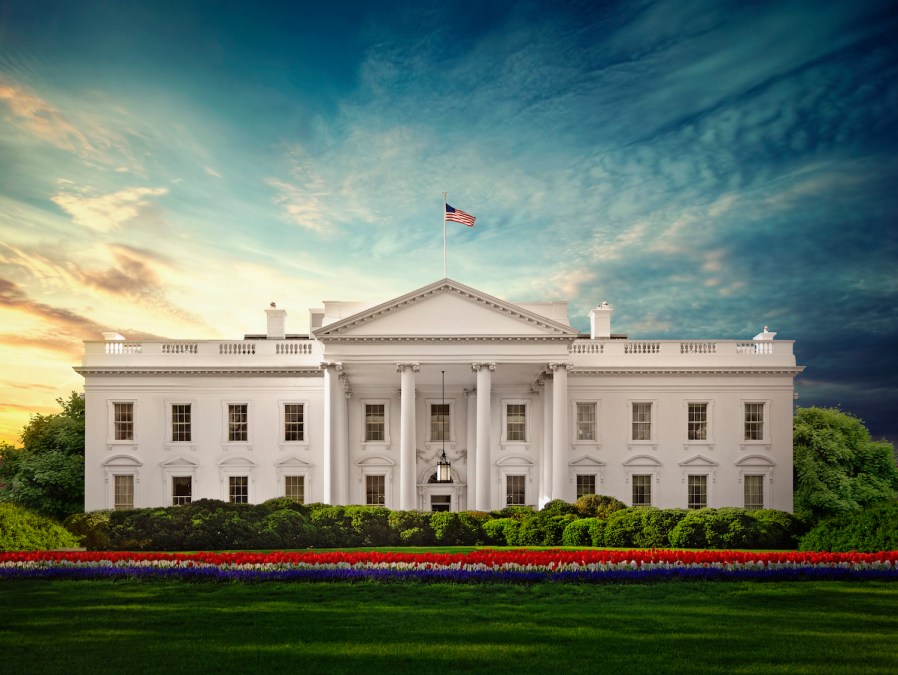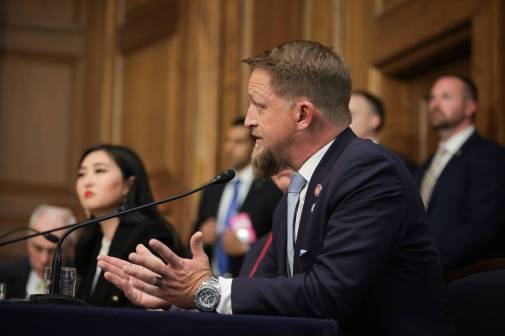White House officials meet with state, local leaders on AI governance

White House officials on Wednesday expressed interest in maintaining open lines of communication between federal, state and local governments as they navigate the governance of artificial intelligence.
The comments came during the first public meeting of the GovAI Coalition, a group of state and local government leaders promoting the responsible use of AI. Spearheaded by technology officials at the City of San Jose, California, the group has attracted at least 500 officials from 200 local, county and state governments since launching in November. About 200 people attended the Zoom meeting on Wednesday.
“Our role is to harness the power of science, technology and innovation to achieve America’s greatest aspirations and tackle our biggest challenges,” Denice Ross, deputy U.S. chief technology officer with the White House Office of Science and Technology Policy, said at Wednesday’s meeting. “President Biden and Vice President Harris have been clear from the start that we must manage AI’s risks so that we can seize its benefits and that’s especially true in local government where AI can so directly impact the lives of citizens.”
Ross compared the administration’s focus on AI to the Open Government Directive from former President Barack Obama in 2009 after Hurricane Katrina, which she said transformed state and local governments.
“We realized that our own local governments should be making its data available to the public …and publishing that data should just be part of being a modern local government,” said Ross, who was working for the City of New Orleans at the time. “We didn’t have to figure out how to apply these principles of open government alone, we benefitted tremendously from networks that connected us with peer cities, similar to what you all have created with the GovAI Coalition.”
Ross explained that she spoke at the meeting not only to share the federal government’s perspective on AI governance, but to learn about the innovations, opportunities and challenges state and local governments are facing.
Ross added that the White House is establishing policy infrastructure to maintain open lines of communication as more federal AI policies emerge through the “U.S. Tech Policy Network,” a hub for disseminating federal technology policies and gathering input from state, local, tribal and territorial leaders.
“We work through networks like the GovAI Coalition that are already convening state and local tech and data professionals, because that’s the only way we can get to scale with the nation’s 19,000 sub-national governments,” Ross said.
Olivia Zhu, a senior policy adviser on AI for the White House, provided the group with a list of about 1,200 AI use-cases within the federal government. She pointed to the Social Security Administration, which is using AI to more quickly process applications for disability benefits.
“What they’re doing is not making determinations using AI, but instead using AI to surface potential relevant medical documents that can help them speed up processing for disability discrimination,” Zhu said. “They’ve actually sped up that processing by an average of five days for applicants. … This means that people in the community are getting the benefits they deserve more quickly.
“We talk a lot about the administrative burden, and I know you guys at the state and local level probably all feel that,” she continued. “But I think that’s a really good example of balancing not necessarily making a high-risk decision using AI, but using AI to help workers in your agencies speed up the process.”
Zhu added that the federal government expects to release its AI procurement guidance sometime this fall.
The meeting marked the GovAI Coalition graduating from the first phase of its strategy. It’s already published documents and resources that governments can use to govern AI, and now the group is focused on adopting the policies.
“The City of San Jose just passed our AI city administration policy,” said Albert Gehami, San Jose’s privacy officer. “But we are here to bring other agencies together on getting these things adopted right. Good data allows us to build better models. If that’s something that we can do together, we might have something really useful on our hands.”






